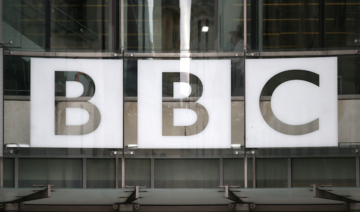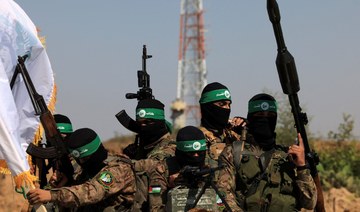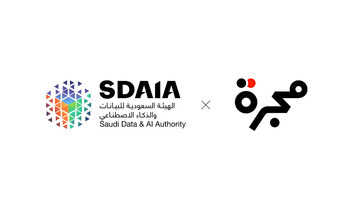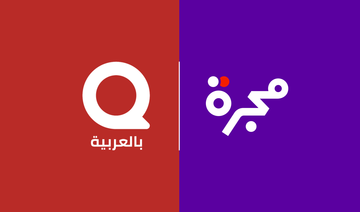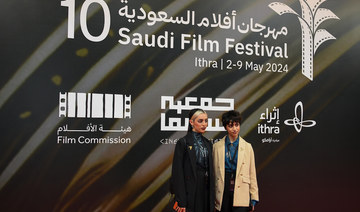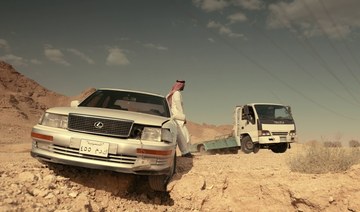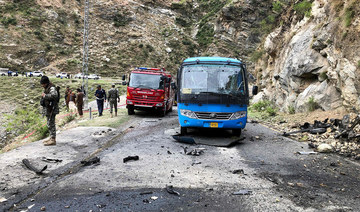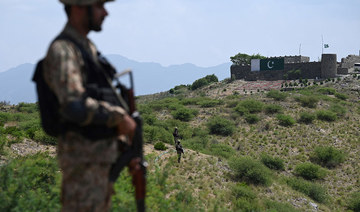BEIJING: If you can make smartphone apps, Chinese tech giant Huawei wants you.
The No. 2 global smartphone brand is struggling to hold onto its market after Washington accused Huawei of being a security risk and blocked access to US components and technology.
That includes YouTube and other popular Google “core apps” customers expect on new phones. They will be missing from the global rollout of Huawei’s next model, the P40, due out in March, replaced by its own music, payment and other apps.
Huawei Technologies Ltd., along with every other smartphone brand except Apple Inc., relies on Google’s Android operating system. So it’s scouring the world for replacements. At events for developers from New Delhi to Warsaw to Sao Paulo, Huawei is promising cash rewards if they meet a deadline Friday to get apps onto its online store.
The company says it will invest $1.5 billion in app development. It faces an expensive, uphill struggle to create alternatives to the Google-centered world of music, navigation and other apps, according to industry experts. Others including Nokia and Microsoft have tried and failed to create their own mobile ecosystems.
Creating “diverse apps” is a “really challenging task to Huawei,” said chairman Guo Ping in videotaped comments released by the company.
Huawei, also the world’s biggest maker of switching gear for phone networks, rejects US accusations it might facilitate Chinese spying. Chinese officials accuse Washington of using phony security claims to hurt a commercial rival.
The Trump administration also is pressing European and other allies to exclude Huawei switching gear from next-generation telecom networks.
The conflict has fed fears technology industries might split into Chinese, US and other spheres with incompatible products.
Huawei’s founder, Ren Zhengfei, has said it wants to stay in a unified global industry and work with Google and other US partners.
The Android system is open-source, meaning phone brands use it for free but most also pay Google for “core apps” and the software to support them.
Huawei can keep using Android but is blocked from buying those “core apps” for pre-installation. That threatens to cripple Huawei’s ability to compete with market leader Samsung and other Android-based phones.
Consumers expect “well-known apps that their peers are using,” such as Google Maps, said Thomas Husson, a principal analyst for Forrester, in an email. “It would require massive investment to convince developers to develop for a new eco-system and a lot of marketing efforts.”
Huawei already sells phones without Google “core apps” in China, where the ruling Communist Party’s Internet filters block access to YouTube, the Google search engine and thousands of other foreign websites. Instead, Huawei phones come with Chinese search engine Baidu.com, video service Youku.com and other local apps.
But Huawei competes on a level playing field in China with competitors that face the same restrictions. In other foreign markets the others have the popular Google package.
For the P40, Huawei has signed an agreement for developers to use maps from a Dutch provider, TomTom. Details of other services have yet to be announced.
In response to questions, Huawei said executives would talk to reporters next month at the Mobile World Congress, the industry’s biggest annual event. The chief executive of Huawei’s consumer unit, Richard Yu, told reporters in December the P40 would be launched in Paris in late March, using Android instead of Huawei’s HarmonyOS operating system, which it unveiled last year.
HarmonyOS is based on code developed for other Huawei devices and could replace Android if needed. But the company wants to keep working with Google, which has spent more than a decade improving Android with input from Huawei and other companies.
Replacing Google apps is “a massive undertaking for any company,” said Dermot Daly, chief executive of Tapadoo, an Irish app developer that isn’t working for Huawei.
Huawei Mobile Services offers some 45,000 apps. But that is barely 1.5% of the 3 million titles on Google Play Store, where most Android users get apps.
Huawei needs to replace Google code that supports video and other features, said Daly. Then it needs to persuade developers to adapt apps to run on Huawei’s new code.
“They’re not building from scratch, but they face a big technical hurdle,” said Daly. “Becoming a world-class software maker is a massive challenge.”
Nokia Corp. took a similar approach with its first smartphone a decade ago but failed to attract enough apps for its system, said Daly. He said Microsoft Corp. tried again after acquiring Nokia’s mobile phone unit in 2013 but faced similar lack of developer interest.
Such difficulties highlight the dominance of US app providers and the very gradual emergence of global alternatives.
For music, Sweden’s Spotify or France’s Deezer may come preloaded on phones, depending on deals with local phone carriers, said Forrester’s Husson. Other options include China’s TikTok for video, Russia’s Yandex for search and email or OsmAnd and MapQuest for navigation, though none is as highly developed as Google or Apple services.
The search goes on: At an event in New Delhi, Huawei promised $20,000 per app for development costs, according to the newspaper Economic Times.
In London, the website Telecom.com said developers were promised a 20,000 pound ($26,000) reward if they meet a Jan. 31 deadline. A video released by Huawei said the company has set aside $10 million to subsidize app writers in Poland.
Huawei says its 2019 sales rose 18% to $122 billion. But it warned the smartphone business, which shipped 240 million handsets last year in 170 countries, could suffer.
The Trump administration has postponed full enforcement of sanctions after US processor chip makers and other vendors warned they would lose billions of dollars in sales. But Ren, the company founder, has said Huawei expects them to go ahead.
Huawei has one of the world’s biggest research-and-development budgets and ramped up spending on developing its own chips and other technology long before running afoul of Washington.
It spent more than $15 billion last year — more than Apple or Microsoft — and a total of 485 billion yuan ($65 billion) over the decade before that. Industry analysts say the company is increasingly self-sufficient in chips and other components.
Huawei has yet to confirm details of the P40, but news reports suggest it will run on the company’s Kirin 990 chip instead of one from Qualcomm or Intel. That reduces risks of supply disruptions.
“We will become more open and work with our partners around the world to develop secure, sustainable and thriving eco-systems,” said Guo, its chairman.
At the same time, Huawei is trying to persuade Canada to release its chief financial officer. She is being held in Vancouver on US charges related to possible violation of trade sanctions on Iran.
Ren, who founded Huawei in 1987, expresses confidence it can withstand US pressure.
“The United States might further escalate their campaign against Huawei, but I feel the impact on Huawei’s business won’t be very significant,” Ren said during an appearance at the World Economic Forum in Switzerland. “I think we are more confident that we can survive further attacks.”
Huawei races to replace Google apps for next smartphone
https://arab.news/m9msj
Huawei races to replace Google apps for next smartphone
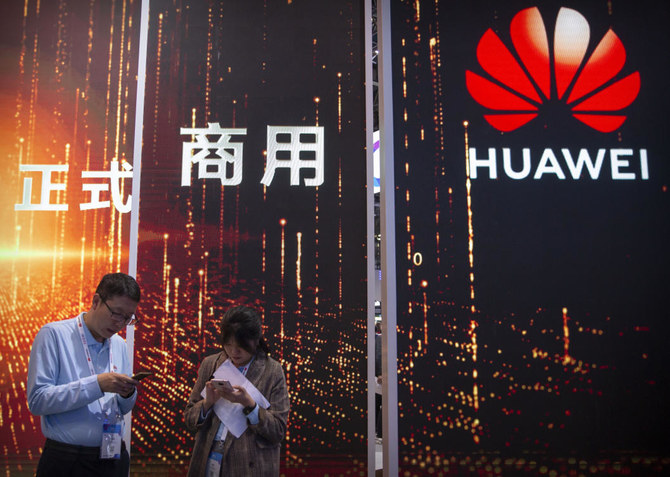
Saudia Airlines to bring AlUla FM onboard in new strategic partnership

- Initiative aims to raise awareness and appreciation of AlUla’s rich cultural heritage, company says
LONDON: Saudia Airlines announced it is brining AlUla FM radio to its onboard entertainment as part of a strategic partnership with the Royal Commission for AlUla.
Announced on Monday, the new initiative aims to raise “awareness and appreciation of AlUla’s rich cultural heritage among passengers and those intrigued by Saudi Arabia’s offerings,” the companies said in a statement.
“AlUla’s rich stories and deep cultural legacy are taking flight with Saudia,” said Abdulrahman Altrairi, chief communications and PR officer, and official spokesperson for the RCU during a presentation with Khaled Tash, Saudia’s group chief marketing officer.
“Our new agreement promotes cultural heritage, RCU partnership network and invites new audiences to join in the expansion of AlUla as a global destination and AlUla FM as an audio platform.”
The Saudi national carrier said that AlUla FM is now accessible on all flights through the airline’s “Beyond” inflight entertainment system, in what the radio described as a major advancement in its evolution as an audio platform.
Since its official launch in 2020 under the banner “The Sound of Arabia,” AlUla FM has served as a platform for the promotion of AlUla, broadcasting local narratives to an international audience through regular and seasonal shows and programs.
British foreign secretary renews call for BBC to label Hamas as terrorists

- David Cameron says BBC should ‘ask itself again’ how it labels Hamas after death of British-Israeli hostage
- BBC defends its editorial position citing concerns over impartiality
LONDON: British Foreign Secretary David Cameron reiterated his appeal to the BBC to designate Hamas as a terrorist organization following the death of a British-Israeli hostage.
The national broadcaster has maintained a clear stance since the beginning of the conflict, referring to the Palestinian group as “fighters,” “militants,” or a proscribed terrorist organization in its coverage.
This decision has sparked a nationwide debate, with some experts and politicians accusing the corporation of avoiding an accurate portrayal of the Islamist group, which is holding Israeli hostages.
Speaking to the BBC’s Laura Kuenssberg on Sunday, Lord Cameron urged the organization to reconsider how it labels Hamas and reassess its editorial policy.
The foreign secretary said: “Like everyone else, I watched the video on Twitter, X, last night, put out by Hamas of Nadav (Popplewell) answering a question as to who he was. And I watched that video and you just think, what callous people they are to do that, to play with the family’s emotions in that way.”
He added: “And when you see what Hamas are prepared to do, you just realise the terrible, dreadful, inhuman people, frankly, that we are dealing with.
“Maybe it’s a moment actually for the BBC to ask itself again, shall we describe these people as terrorists? They are terrorists.”
The BBC has resisted calls from the government to classify Hamas as a terrorist organization, fearing it could compromise its impartiality in the conflict.
Last October, Deborah Turness, chief of BBC News, explained the network’s decision not to label any group as terrorists, stating that such terminology is often politicized and weaponized in conflicts.
Hamas announced on Saturday that Nadav Popplewell had died from injuries sustained in an Israeli airstrike a month earlier, and released a video in which he appeared with a black eye and provided personal details.
Popplewell was abducted with his mother from her home in the Nirim kibbutz during Hamas’s incursion into southern Israel on Oct. 7, according to the Israeli Hostages and Missing Families Forum. His brother was killed, while his mother was released during a temporary ceasefire in November.
Cameron said that there were no updates on the fate of Nadav Popplewell as the Foreign Office continues to investigate the situation.
Majarra to publish ‘Werathyat’ magazine in partnership with Saudi Society for Medical Genetics

- Collaboration includes agreement to disseminate knowledge about genetic science and medicine in Arabic
DUBAI: Arabic digital content provider Majarra has signed an agreement with the Saudi Society for Medical Genetics to publish Arabic content that advances knowledge sharing in the field of genetics.
As part of the agreement, Majarra will publish SSMG’s quarterly journal “Werathyat,” which raises awareness, and provides education about genetic diseases and advancements in the field.
The magazine also highlights SSMG’s new initiatives and social responsibilities, with the goal of promoting genetic literacy and reducing the prevalence of genetic diseases in Arab societies, the companies said in a statement.
Additionally, the two organizations will collaborate on publishing other high-quality Arabic content on genetic counseling in order to enhance community awareness of genetic diseases, rectify misconceptions surrounding them, and provide psychological and cognitive support to individuals affected by such conditions.
The partnership plays a key role in showcasing SSMG’s efforts “to provide health care, social support, and educational services to individuals with genetic diseases and their families” and “facilitates the dissemination of awareness and genetic guidance through the innovative projects and programs implemented by our Society,” said SSMG spokesperson Prof. Zuhair bin Abdullah Rahbini.
For Majarra, the agreement “aligns with our mission to deliver the best Arabic content on the Internet” and the company will work with SSMG “in carrying out its mission of developing the medical practice of genetics, enriching scientific research, and providing awareness, the level of health awareness in our Arab societies,” said Dia Haykal, Majarra’s director of partnerships and branding.
“Werathyat” will be available on Majarra’s paid subscription-based mobile app. SSMG will provide Majarra subscriptions to all its members.
Britain’s Arab-focused SAFAR Film Festival to feature stories from 15 countries

- Biggest festival to date will include 60 screenings and events across four London venues, plus screenings in 8 other UK venues
LONDON: This year’s SAFAR Film Festival will be held from June 18-30 in nine British cities, making it the largest and longest-running Arab cinema event in the UK, according to the Arab British Center.
Curated by long-time SAFAR and Arab British Center collaborator Rabih El-Khoury, the 2024 program will explore the themes of dreams, hopes, and realities through stories from 15 Arab countries.
The festival’s program features 60 screenings and events across four London venues, as well as cinemas in Birmingham, Cardiff, Glasgow, Hull, Liverpool, Manchester, Oxford and Plymouth.
El-Khoury said the festival will include Sudanese and Palestinian cinema, and promised audiences “themes spanning family dynamics, loss, love, migration, and the harsh truths of war and politics.”
He said: “Within these stories, and through challenging and captivating cinema, we aim to facilitate exchange, reflection and share strength in solidarity.”
In its ninth year, SAFAR is viewed as the leading platform for showcasing Arab cinema in the UK.
The program features new releases, classics, archive film, and family-friendly screenings.
Highlights include the documentary “Life is Beautiful” by Mohamed Jalaby, which examines European solidarity, and the rigidity of borders, both physical and bureaucratic, amid the Gaza war in 2014.
Other works include “Bye Bye Tiberias” by Lina Soualem, a poignant exploration of four generations of Palestinian women; “The Burdened” by Yemeni director Amr Gamal, which follows Isra’a and Ahmed who struggle to provide a sense of normalcy for their three young children; and “Inshallah a Boy” by Amjad Al Rasheed.
“The festival forms a key part of our work to further understanding of the Arab world in the UK,” said Nadia El-Sebai, executive director of the Arab British Center.
“This year we are honored to work once more with Rabih El-Khoury and our guest curators and partners across the UK to present our biggest festival to date.
“Despite the shadows cast by the difficult realities faced across the region, SAFAR invites us to come together and find solace, hopes and dreams, in the universal language of cinema,” she said.
Taliban warn journalists and experts against cooperating with Afghanistan International TV
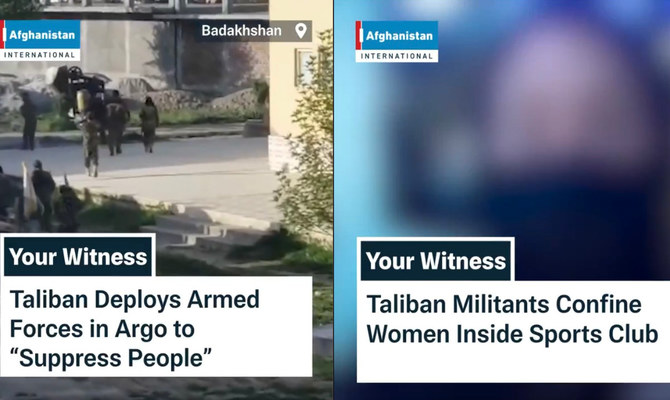
- Cooperating with the London-based media outfit is a crime, says Taliban information ministry
- During their previous rule in the late 1990s, the Taliban barred most TV, radio and newspapers
KABUL, Afghanistan: The Taliban on Thursday warned journalists and experts against working with Afghanistan International TV, saying they would be committing a crime if they cooperated with the station. It’s the first time they have told people not to cooperate with a specific outlet.
Afghanistan International TV, which is headquartered in London, is accessible through satellite, cable and social media.
A spokesman for the Taliban-controlled Ministry of Information and Culture alleged the station was committing professional violations and violating moral and legal boundaries.
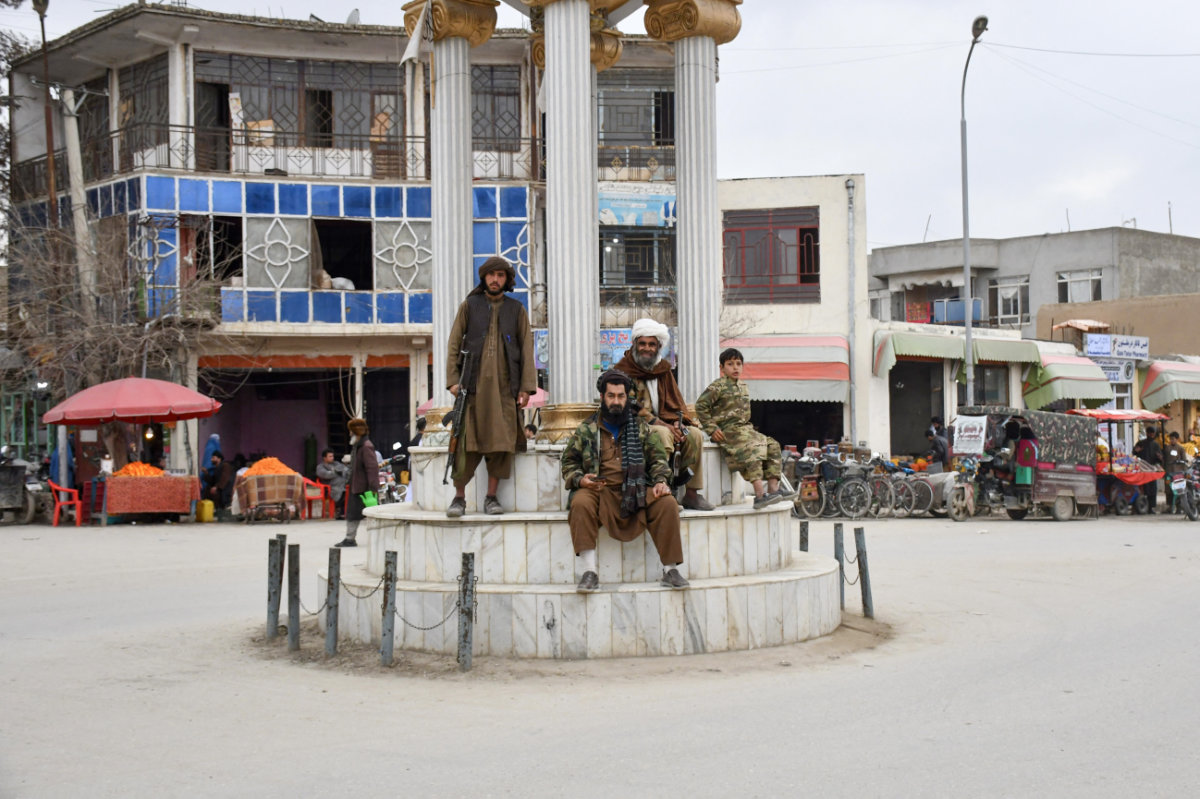
The Media Violations Commission wanted all journalists and experts in Afghanistan to cease their collaboration with the station, said ministry spokesman Habib Ghofran.
“At the commission’s meeting held yesterday (Wednesday), it was decided that participating in discussions and facilitating the broadcast of this media outlet in public places is prohibited,” added Ghofran.
The deputy minister for broadcasting Zia ul Haq Haqmal said people would be committing a crime if they cooperated with the station.
He cited 10 reasons to avoid working with Afghanistan International TV, including its alleged distortion or falsification of information and campaigning against the ruling system.
“If someone does not cooperate on the basis of all these 10 reasons, then it’s the court’s job to give a punishment,” said Haqmal.
The director of Afghanistan International TV, Harun Najafizada, said the commission’s decision would not affect the channel because it had no employees or freelancers in the country.
“We don’t have anyone on the ground and rely on the reporting of Afghan citizens,” said Najafizada. “That’s more challenging, but we have tough verification. It’s a threat to free media, to other media, and to put pressure on us to forgo our professional standards. It’s not going to work.”
Afghanistan fares abysmally in terms of press freedom. The latest index from Reporters without Borders ranked the country 178 out of 180. It ranked 152 last year.
The organization said three radio reporters were arrested in April for broadcasting music and receiving calls from female listeners during shows. Local authorities weren’t available to confirm the arrests.
Also last month, the Taliban suspended two TV stations for failing to “consider national and Islamic values.”
The director for one of the suspended stations, Barya TV, rejected the Taliban’s allegations. The station is still off air.
Latif Sadiq said the station wasn’t informed about the suspension. “The reports that they repeatedly warned (Barya) are absolute lies,” Sadiq said Thursday. “They have decided on their own that (Barya) television is off, broadcasting is off, and they said the case will go to court.”
Many journalists lost their jobs after the Taliban takeover in 2021, with media outlets closing over a lack of funds or because their staff left the country. Women journalists face additional hardships because of work bans and travel restrictions.
During their previous rule in the late 1990s, the Taliban barred most television, radio and newspapers.



